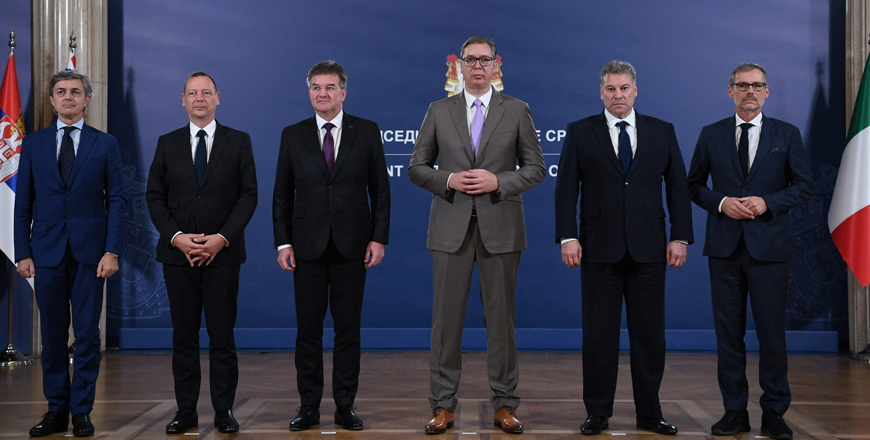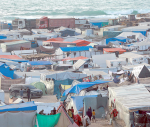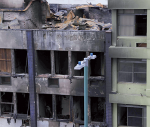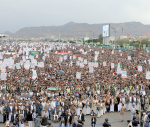You are here
Serbia-Kosovo dialogue urged as Balkan summit opens
By AFP - Oct 16,2023 - Last updated at Oct 16,2023
TIRANA — European leaders urged dialogue between Kosovo and Serbia after a recent spike in tensions, as a regional Balkan summit opened on Monday in the Albanian capital Tirana.
Following the killing of a Kosovo police officer and three Serb gunmen in clashes in Kosovo’s volatile north, simmering friction escalated to the highest level in years.
“It is time to overcome conflicts that have continued for far too long,” German Chancellor Olaf Scholz told the summit.
“The recent escalation of the situation in north Kosovo has proven just how important that is”.
On the eve of the event, European Commission President Ursula von der Leyen urged Belgrade and Pristina to return to a Brussels-sponsored dialogue on normalisation of ties.
“This is the way towards a future where Kosovo and Serbia will be part of the European Union,” she said in Tirana on Sunday.
But Serbian President Aleksandar Vucic will not attend this year’s edition of the annual summit. He travelled instead to Beijing for the Belt and Road Forum, where he is due to sign a free trade agreement with China.
Serbia’s Prime Minister Ana Brnabic, however is present in Tirana.
On the agenda at the meeting are discussions around a greater convergence with the European Union and “supporting ecological and digital transition” in the region.
During the one-day meeting, leaders are also expected to ratify an agreement on the mutual recognition of professional qualifications, and announce the opening of a College of Europe campus in Tirana.
Regional tensions
Monday’s meeting is the 9th summit of the Berlin Process, launched in 2014 by then-German chancellor Angela Merkel.
The Berlin Process aims to promote political dialogue, cooperation and reconciliation between six West Balkan countries — Albania, Bosnia-Hercegovina, Kosovo, North Macedonia, Montenegro and Serbia.
It is also a space to foster closer ties with the EU — with nine member states including France and Germany involved in the annual summit.
Hungary, The Netherlands, Romania and Spain are also joining this year, at the invitation of Albanian Prime Minister Edi Rama.
Last year’s meeting produced several agreements on free movement and residence in the region, as well as the recognition of university and certain professional qualifications.
Von der Leyen also announced a 1 billion-euro ($1.1 billion) energy support plan.
“The Berlin process in the past decade has produced a lot of agreements, but little follow up,” said Florian Bieber from the Balkans in Europe Policy Advisory Group (BiEPAG).
“In Vienna, in 2015, the foreign ministers of all six countries signed a declaration to not have bilateral disputes stand in the way of the EU path,” he added.
But despite pledging to resolve their disagreements, the countries have put no monitoring mechanism in place, said Bieber, meaning that their disputes “continue to bedevil the region”.
In the aftermath of recent tensions, Kosovo’s government displayed a large arsenal of weapons and equipment and accused the government in Belgrade of backing Serb gunmen in clashes in the volatile north.
“We’ve got plenty to do,” said an adviser to French President Emmanuel Macron, “with concerns about both Serbia and Kosovo, as well as Bosnia”.
Macron is due to arrive on Monday evening and will stay in Albania on Tuesday for bilateral meetings.
“In terms of Kosovo and Serbia, we can see that Vucic’s absence is a clear sign of the lack of good will,” which could risk isolating Belgrade internationally, said political researcher Katarina Radic.
“When we come back home from Tirana on Monday I’m sceptical that Serbia or the region will be any different to what we have today,” she added.
Related Articles
PRISTINA — An EU envoy warned Saturday that any delays in calming tensions between Kosovo and Serbia — which he described as more urgent tha
TIRANA — Ukrainian President Volodymyr Zelensky on Wednesday pleaded with Balkan leaders for greater backing to help fend off Russian forces
BANJSKA, Kosovo — Gunmen holed up in a northern Kosovo monastery clashed with authorities on Sunday, according to Prime Minister Albin Kurti

















